
 Since I missed posting the Friday Five this holiday weekend, here is the Saturday Six instead. Six winners can choose a free book at the holiday giveaway at Uncommon YA. Good luck!
Pongo Teen Writing is a non-profit organization that offers poetry writing programs to at-risk teenagers who may be in jail, a psychiatric hospital, or have other difficulties. Through Pongo, teens are offered a creative outlet. Although this program is geared toward troubled teens, anyone can use their methods to inspire creativity. The website publishes teen poetry and offers a quarterly $100 Pongo Prize. Based in Seattle, Pongo was founded by Richard Gold in 1992. Richard “is a man with a huge heart -- generous, thoughtful, and compassionate, who wants to make a difference in the world,” says Ann Teplick, a Pongo mentor for 13 years. Why has Ann volunteered for over a decade? Richard's leadership is one reason. The other is the teens themselves. “I am most interested in story, and in helping to get the stories from those whose voices are often overlooked....” At home, teens can use the site's Writing Activities which offer a blank page to write, a randomly suggested activity, or a featured activity, such as a template to create a poem about courage and fear. Obviously the process is different when Ann and other volunteers work with a teen in a psychiatric hospital. “When we meet with the teens, we share our belief that they have important things to say, and that the world needs their stories. We share the value of writing from the heart about who we are as people.... One technique we offer as a structure, is to take dictation. To sit with the writer and let him or her talk. We might ask, 'What’s on your mind?' They might respond, 'I wish my mother did not have so many boyfriends.' We are the scribe. We record what they say. We ask them questions along the way, guide them. This may evolve into a Wish poem with the poetic device of repetition." Write Your Own Wish Poem
The Time Is Now: Advice from AnnThe time is now! Take a risk and jump in. You will never be sorry. Find a creative writing class (on and/or offline). Find a writing community of teens. Seek resources from teachers, writing centers, community centers, afterschool arts non-profits. Find your people and dialogue, share your work, your ideas. Support one another. It takes a village. Really.” Sample Poetry from a Pongo Teen
This week’s Friday Five focuses on finding writing conferences, retreats, and workshops. Most of these are specific to children’s writers, but some events are for other genres as well. 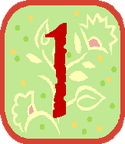 Each year, the Society of Children’s Book Writers and Illustrators hosts two large conferences. The summer conference is held in Los Angeles over three days with an optional intensive (August 1-4 in 2014). For more information about what to expect, read YA author Jody Casella's summary of her experience in 2013. The winter conference is held in New York City over two days with an optional intensive (February 21-23 in 2014) and registration is now open. The NYC conference includes two workshops (that you select) with an editor, agent, or art director, plus numerous industry panels. A complete schedule is available online. On a local level, the SCBWI also hosts regional events. For example, the New Jersey chapter holds an annual conference in Princeton each June, as well as other activities. At the NJ conference, for an additional fee, you can meet one-on-one with an editor or agent (you choose from those attending) for a fifteen page critique. Regional events can be great for networking without travelling too far. 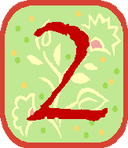 An extensive list of other conferences is available at Shaw Guides. For example, the 21st Century Children's Nonfiction Conference is being held June 20-22, 2014 in New Paltz, New York. 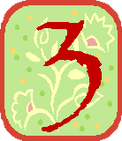 Each August, WriteOnCon, an online children’s writing conference, is offered for FREE. According to the website, “keynote addresses, agent panels, and lectures are presented as blogs, vlogs, moderated chats, webinars, podcasts, and livestreaming. There is also a critique forum, where participants can post query letters and writing samples to receive helpful feedback and comments from their peers and industry professionals.” An archive of the 2013 event is available online. 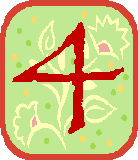 Imagine clearing your schedule of everything but writing! A retreat can provide you with the dedicated time you need to make progress on a project. Writer Vonna Carter has compiled an extensive list of 2014 workshops and retreats across the United States that focus on the craft of writing. They can range from two days to two weeks. 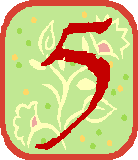 If you prefer to do your learning from home, Vonna has also compiled a list of 20+ online workshops. During an online class, “lectures” are posted as notes on a website that the group can access. Members typically upload their assignments based on a predetermined schedule, and if critiques are included they are posted by classmates online. For example, Gotham Writer’s Workshop offers a ten-week class on the basics of children’s writing that includes instruction, assignments, and two critiques. These types of classes allow you to interact with peers outside of your immediate local area. If you’re unable to attend a regular class (if you have young children, for example), online workshops can be a helpful alternative. If you know of other helpful links for conferences, workshops, or retreats, let me know in the comments. Happy Writing!
Where Teens Write was created and launched by high school English teacher Amy Isaman earlier this year. It's a place for writers (ages 13-19) to get feedback on their work-in-progress, to submit stories to be posted online, and to access writing resources. “I decided to create WTW with a focus on improving writing and learning to write rather than just sharing writing, though I think that’s important,” Amy says. “The purpose is for teens to have a safe, friendly, supportive, and inspirational environment to share their writing.” She also created a Facebook page containing helpful writing links. Writing Opportunity!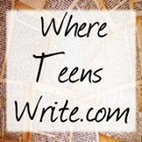 Where Teens Write would like to feature a monthly column on what it’s like to be a teen writer. If you'd like to submit a piece for the new column, email Where Teens Write for details. Writing PromptWhere Teens Write offers several writing prompts. Here is one of Amy’s favorites: Grab your favorite novel. Open it up to a random chapter. Write down the first sentence of that chapter. Choose another chapter. Write down the last sentence of that chapter. Write a 500 word story using those lines as the first and last lines of your story. Advice from a Creative Writing TeacherAmy offers four pieces of advice to teen writers: 1) Keep writing! Don’t ever let a negative curmudgeonly person convince you to give up your dreams of writing. You are writing because you love it and need to heed that call to write. 2) Write your truth. Don’t try to write like your favorite author or include the latest plot trends just because they’re popular. Write your story in your way. It’s opening up to your truth and honoring it that makes writing great. 3) FINISH a piece! I have so many students who have new ideas bubbling up every day. They start writing super excited about it, but then when it gets difficult, they put it aside and start on the next new exciting idea. They have piles of half completed stories, but nothing that they’ve worked all the way through. To really learn about writing and hone your craft, you need to work through the hard parts and figure them out. Even if you hate your story when you're done with it, you’ll have learned something about plot or character. You need to work through the hard parts because there are definitely hard parts when it comes to writing. 4) Find a great critique partner that you trust. This could be online or face to face, but getting good feedback is super important to becoming a better writer. Thank you for the interview, Amy. In addition to teaching 9th grade English, 9th grade Honors English, and Creative Writing, Amy Isaman is also working on her own novels and is participating in Nanowrimo along with 17 of her students.
Visit Where Teens Write or join them on Facebook. From your own name in the news to killer whale noises, this week's roundup of websites has you covered.  To keep up with a certain topic in the news or monitor when you (or your book) is mentioned online, try Talkwalker. This program allows you to set up multiple free alerts. The results are then emailed to you automatically. (Google Alerts works in the same way.)  Need article ideas? At Any Day in History, you select the day and the site displays notable births, deaths, and events that occurred on that date. Earth Calendar displays holiday celebrations around the world. You can view holidays for a specific year by country, or look at what celebrations are happening now. 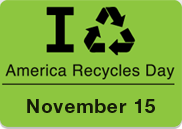 For example, today is America Recycles Day. Who knew? Both these sites could be helpful in sparking an idea for a writing project.  For a huge collection of reference material, check Martindale’s The Reference Desk, which includes numerous math and science links, along with language and other topics, too. Martindale's led me to a great audio of killer whale vocalizations.  The US government’s Bureau of Labor Statistics provides the Occupational Outlook Handbook online. If you need to decide on a character’s career, this site can provide data on job responsibilities, work environment, pay, and necessary education. The “more information” link provides related associations for each profession, which could serve as a contact for interviews if more details are needed.  Do you have a question you can’t find the answer to? If you’re really stumped, try Ask an IPL2 Librarian for help. The volunteers (professional librarians and library science graduate students) try to respond within a week. Let me know if you find these resources helpful or if there are others you would recommend.
Today’s Teen Tuesday market is YARN, Young Adult Review Network. YARN is a four-year-old literary journal that publishes original short fiction, poetry, and essays for young adult readers. It’s a nonpaying market open to teens and adults, and they run at least one contest a year with gift card prizes. For example, they just held a Fall Treats Contest.  Their writing guidelines are available online. What’s the best way to get published in YARN? Editor Kerri Majors advises: “Submit the best story on your hard drive, the story that's been workshopped and revised and polished and proofread (twice!). Also: Got an essay? Check out the narrative, creative essays we've already published and ask yourself if you have a real-life story you'd like to tell. We don't get nearly enough nonfiction submissions, so it's a much faster way to get noticed.”
 For more writing advice, check out Kerri’s book for teen writers: This Is Not a Writing Manual: Notes For the Young Writer in the Real World. "The book is a memoir of my own writing life, in which I tell stories about the lessons I learned in high school and college that stood me in good stead for many years to come. When I sat down to write it, I asked myself, ‘What do I wish I'd known about the writing life when I was fifteen and working on short stories in my spare time?’ Then I wrote the book to answer that question,” Kerri says. “I'll condense a bit here, though: The writing life is long and rewarding in many ways *other* than publication. If you want to be a writer, ignore the seductive but ultimately misleading stories of overnight success (writers like Stephanie Meyer), and instead take the long view. Focus on improving your craft over time, indulging your love of words, and finding a paying job that nurtures your creative side.” Thank you, Kerri! Here are the YARN submission guidelines: yareview.net/how-to-submit. Good luck, writers! Kerri Majors is the editor of YARN, and author of This is Not a Writing Manual: Notes for the Young Writer in the Real World (Writer's Digest Books, July 2013).
Do authors really need to blog? As I got ready to launch this blog, I read a number of articles arguing no, maybe, and yes to the blogging concept. I've included a sampling of the viewpoints below, along with some tips to make your blog better. Blog? NO. Spend your time writing something else. "It’s Time for (Many) Experienced Writers to Stop Blogging" (by L.L. Barkat via Jane Friedman) makes the argument against blogging.  MAYBE you should blog. "3 Reasons for Writers to Have a Blog . . . and 3 Reasons Not To" (by Ali Luke and Joe Williams via Joanna Penn) is a balanced article that explores the pros (such as the blogging community) and the cons (such as the difficulty in promoting fiction). YES! Blog away! “Being an author in 2013 is like being a small business owner,” Fauzia Burke says. In "5 Reasons Authors Should Blog," she explains why an author blog is important. If you do have an author blog, here are two great resources for improving it: "8 Things Every Blogging Writer Should Know" contains concrete, practical details (by writer/blogger Chris Higgins via Chuck Sambuchino).
Do you think blogging is worth the time spent for writers? And do you know of other interesting posts about blogging for authors? Let me know in the comments section.
Welcome to the kickoff of Teen Tuesdays! Each week, I’ll feature markets or writing resources for teens. I’m proud to start the series with C. Hope Clark’s free email newsletter, WritingKid, which includes opportunities for writers of various ages, from elementary school through the teen years. You can subscribe to the newsletter through her website.
WritingKid pays $10-$20 for accepted writing-related essays and articles. Submissions should be 500-550 words. Hope’s advice on getting published in WritingKid? “Read the archives and see what others have written. Then study the guidelines. It's really that simple.” Thank you Hope!
C. Hope Clark is the editor of FundsForWriters, including WritingKid, one of three newsletters that she produces to an overall audience of 45,000 readers. Her website has been chosen by Writer's Digest for its 101 Best Websites for Writers for the past 13 years. She is also author of the award-winning Carolina Slade Mystery Series, published by Bell Bridge Books. Her third in that series will be released in first quarter 2014. This post by Yvonne Ventresca originally appeared on the UncommonYA blog. 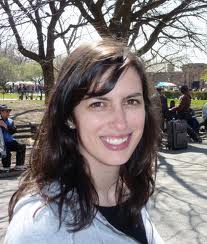 Julie Matysik As part of UncommonYA’s “Behind the Scenes in Publishing/One Thing That Sold My Book” series, I interviewed the editor who recently acquired my debut novel, Pandemic: Julie Matysik of Sky Pony Press. Sky Pony Press is a relatively new children's imprint. Could you explain a bit about its background? In 2010, Skyhorse Publishing acquired Arcade Publishing’s assets, which included a very large backlist of literary fiction, nonfiction, and a handful of children’s books. Our publisher and associate publisher decided it was time for Skyhorse to expand into children’s books, which was a category we had not been publishing in. We had a few meetings and brought on a wonderful consultant for the first six months or so, and Sky Pony Press launched its first list in the fall of 2011. Since that first list, we now have about 100 titles in print, in all children’s categories except early readers. I originally contacted you about my YA novel, Pandemic, through an email query. Are you still accepting unsolicited queries? What else do writers need to know about Sky Pony's submission policy? Yes, we do still accept unsolicited queries and probably will for the foreseeable future. While the majority of the projects I acquire for the list are agented, I do usually have between 1-3 books on each list that have come to me un-agented or through an email query. We’ve posted our submission guidelines on our website but what I typically look for in picture books is a completed manuscript (and illustration samples if those will be considered with the manuscript), an author bio/platform (what makes you the perfect person to write this book and/or what can you bring to the table as an author that will help us to sell the book more successfully, i.e., social media outreach, blogs, speaking engagements, etc.). If you are submitting a middle grade or YA novel, I prefer to have the entire manuscript to read as well as an author bio/platform, comparative titles that are already on the market (and how your book enhances these or is different from them), as well as who you believe the intended audience is. The theme of this blog post is "One Thing That Sold My Book to a Publisher." Are there certain things in general that you look for when acquiring a YA novel? Could you explain what appealed to you about Pandemic? When I’m acquiring a YA novel, I’m really looking for the voice of both the author (which is paramount) and how relatable the main character is—will readers be able to connect with this character on a real level, regardless if the book is fantasy, sci-fi, dystopian, contemporary, etc. While I tend to be drawn more to contemporary YA novels, I am not unwilling to consider other genres in this category. But I do want a character that I can see readers connecting with instantly and wanting to follow from start to finish—and possibly beyond. What was instantly appealing about Pandemic is that in the first few sentences, I was invested in Lilianna and her world. It was a world I could understand and empathize with. Her fears and apprehensions and, frankly, courage were all things I had felt as a teenager, though certainly not under the same circumstances, thankfully. Also, the pacing in Pandemic keeps the book moving forward and this is also important to me when acquiring YA fiction. You don’t want the action or the plot to lull for too long but rather keep the reader engaged and wanting more at every page turn and chapter ending. I know you also acquire picture books. What types of those stories appeal to you? My publisher and I both feel that picture books that convey a message, that inform children about the world in which they live, and that bring a little bit of humor to the whole family are key to making a successful and lasting picture book. So I seek to acquire books that do have important lessons to teach without being heavy handed or overly preachy. I also have a soft spot for the quirky and silly and so try to include a few books like that on each list (and if they have a message, all the better!). Do you have any specific advice for unpublished YA authors? I think the best advice I can give to unpublished YA authors is to find a writing critique group and/or a trusted writing partner and really dig through your manuscript to find that rough gem inside. And then polish it until it shines and you are feeling confident in sending it out to agents and/or editors. Don’t give up if you get rejection and do take any constructive criticism into account as you revise the manuscript to resubmit. And really research the people you want to submit your book to. Know what those agents are representing and what those editors are acquiring. Doing your homework will really help you to find the perfect match for your book. Thank you, Julie! For Sky Pony’s submission guidelines: www.skyponypress.com/guidelines I'm part of Uncommon YA, a group of young adult authors who've come together to spread the word about our newest fiction. Our genres include realistic, contemporary, historical, magical realism, and paranormal -- with a healthy dose of suspense woven throughout all of them. Uncommon YA is currently in the midst of a giveaway. I'm one of the authors available for a ten page critique of your work-in-progress. You can enter the giveaway below. Good luck! For a short time Uncommon YA is offering YOU the chance to choose your prize. WARNING: It will be tough picking just one! The 6 titles are: The Traz, Sliding on the Edge, Louder than Words, Escape from Eden, Vigilante Nights, and Devolution. If the cover pictures don't load below, click for a description of each book. Click here to enter now: RAFFLECOPTER Three people will win their choice of one Ebook from the selected titles. Or a ten page critique of your work in progress is also available from the authors!
|
JOIN NOW!
Sign up for Yvonne's newsletter for exclusive content, book news, and other occasional author goodies. Archives
June 2025
Categories
All
|




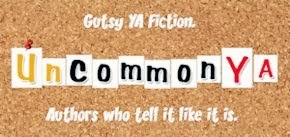






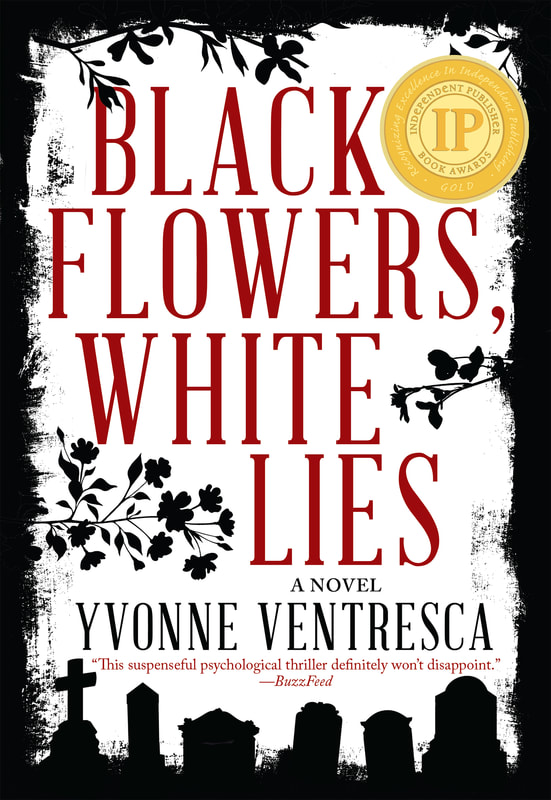
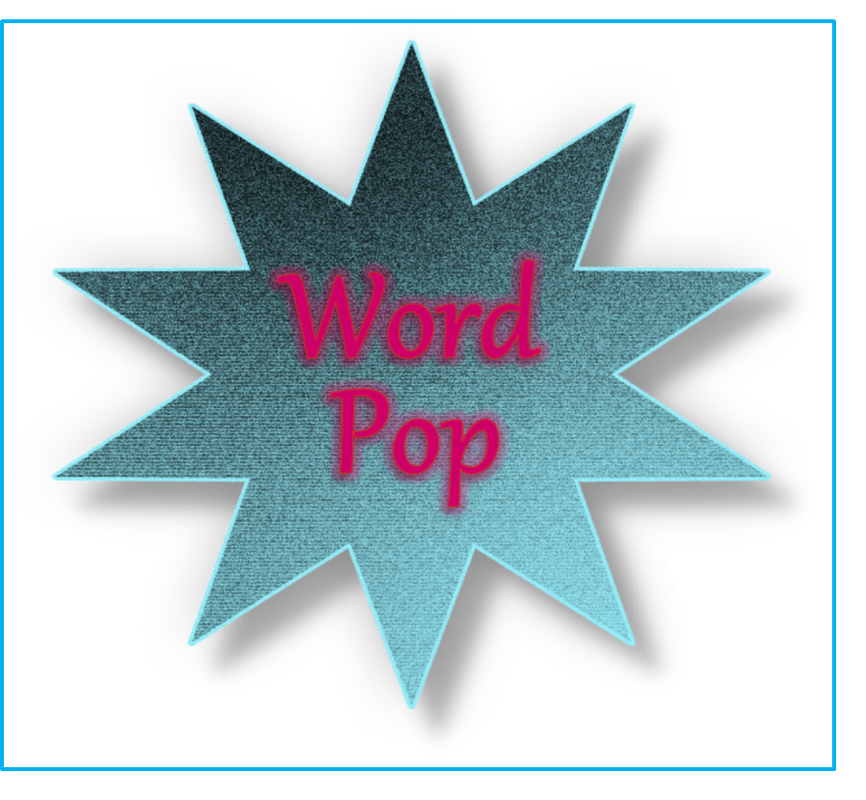
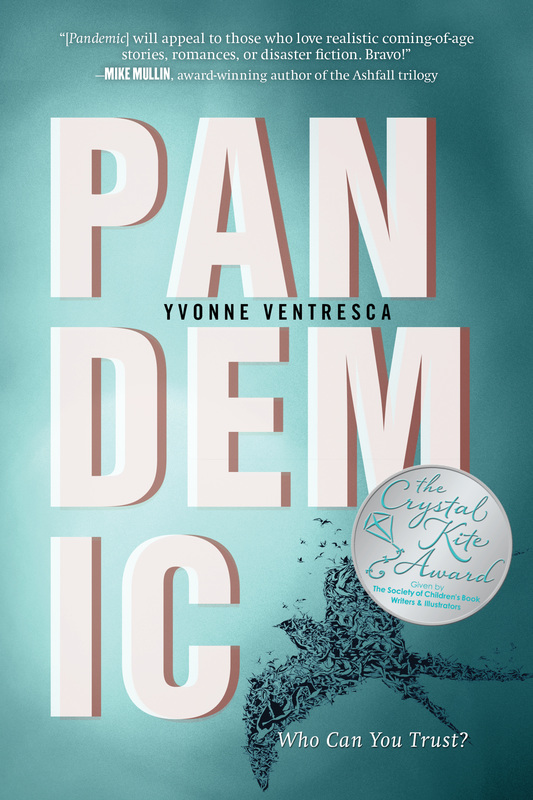
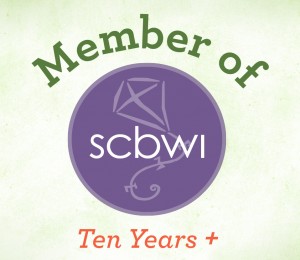

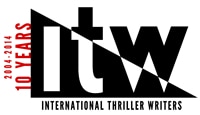
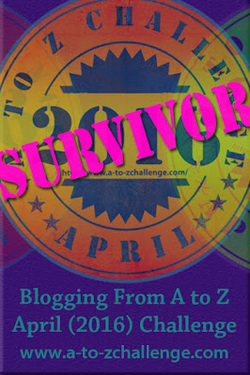
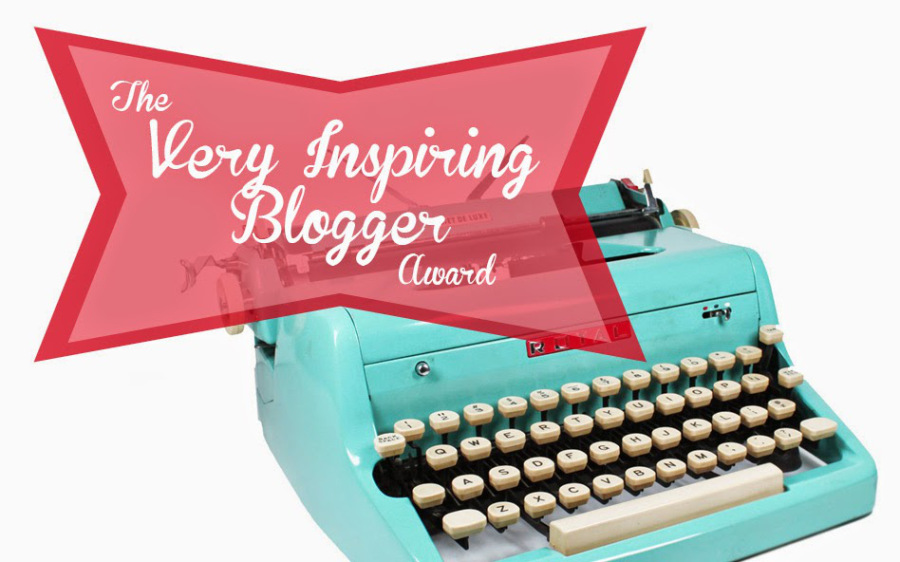
 RSS Feed
RSS Feed